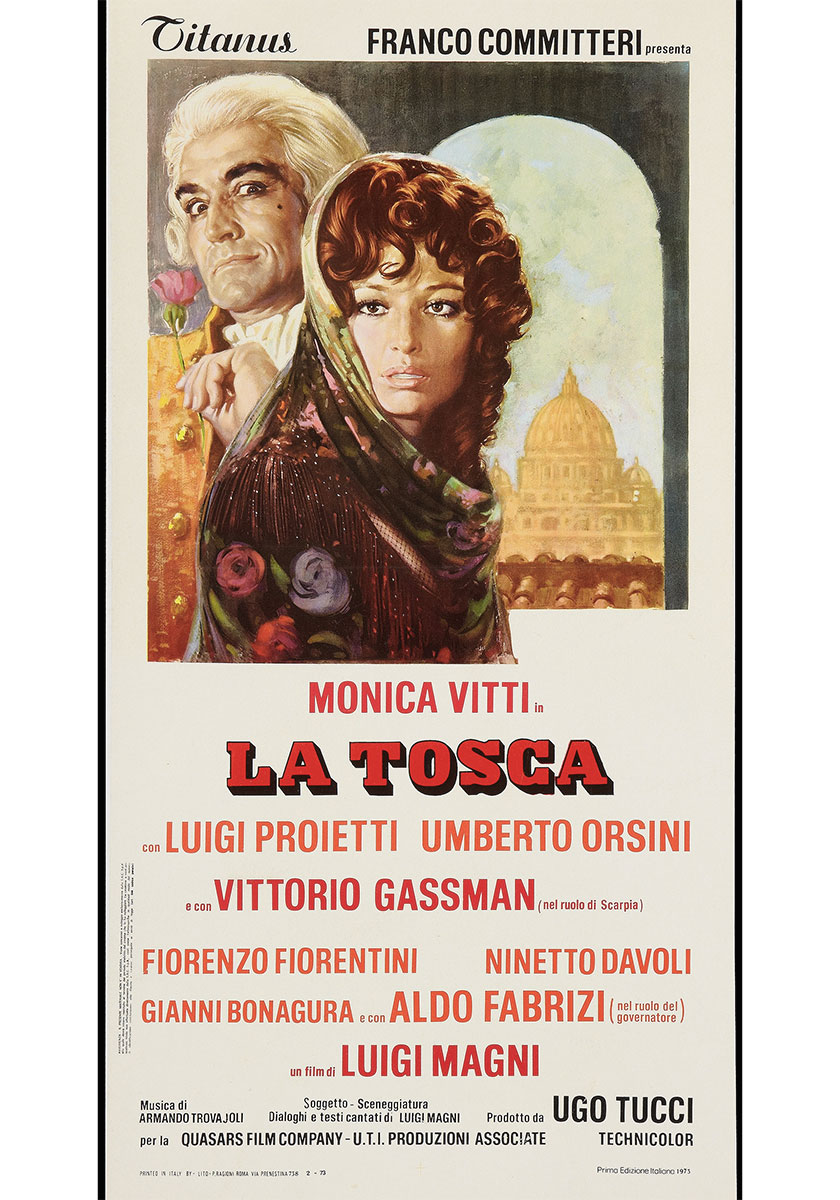Roman singer Luigi Magni directs a superb cast in a unique musical
Luigi Magni was a successful singer of traditional Roman songs. His films unite great attention to historical detail, stylish elegance and echoes of the commedia all’italiana genre, while incredibly keeping everything balanced. He gets the best from his cast, even under difficult conditions. Tosca is an exemplary demonstration of his skills. Loosely based on the opera by Giacomo Puccini (and the play by Victorien Sardou), the film puts a new spin on the story. The music was written by Armando Trovajoli, with lyrics by Magni himself. Tosca is a unique musical, with classical orchestral themes, epic marches, Mexican and Cuban rhythms, and traditional Roman melancholic ballads. The wonderful cast is able to make this intricate and fascinating style appear natural.
Rome, 1800. The singer Flora Tosca is in love with painter Cavaradossi, who is plotting against the Papal State and harbouring a fugitive patriot. The perfidious Scarpia, head of the police, tricks Tosca and gets the better of the revolutionaries. Scarpia falls for the woman, and agrees to free the painter if she will give herself to him. Tosca stabs him to death, but it is too late for her to save her lover, so she throws herself off Castel Sant’Angelo.
Roman singer Luigi Magni directs a superb cast in a unique musical
Luigi Magni was a successful singer of traditional Roman songs. His films unite great attention to historical detail, stylish elegance and echoes of the commedia all’italiana genre, while incredibly keeping everything balanced. He gets the best from his cast, even under difficult conditions. Tosca is an exemplary demonstration of his skills. Loosely based on the opera by Giacomo Puccini (and the play by Victorien Sardou), the film puts a new spin on the story. The music was written by Armando Trovajoli, with lyrics by Magni himself. Tosca is a unique musical, with classical orchestral themes, epic marches, Mexican and Cuban rhythms, and traditional Roman melancholic ballads. The wonderful cast is able to make this intricate and fascinating style appear natural.
Rome, 1800. The singer Flora Tosca is in love with painter Cavaradossi, who is plotting against the Papal State and harbouring a fugitive patriot. The perfidious Scarpia, head of the police, tricks Tosca and gets the better of the revolutionaries. Scarpia falls for the woman, and agrees to free the painter if she will give herself to him. Tosca stabs him to death, but it is too late for her to save her lover, so she throws herself off Castel Sant’Angelo.

